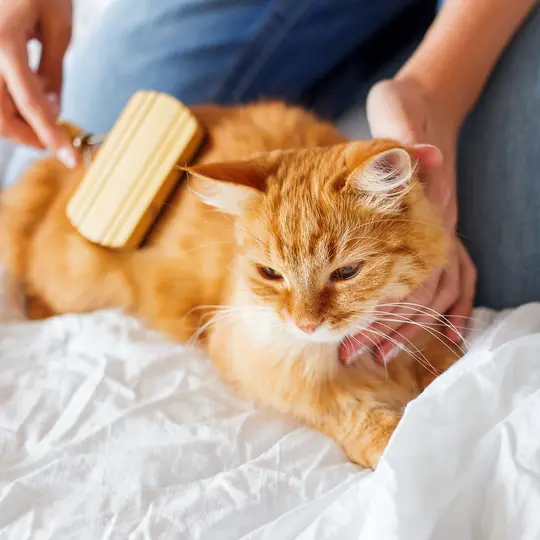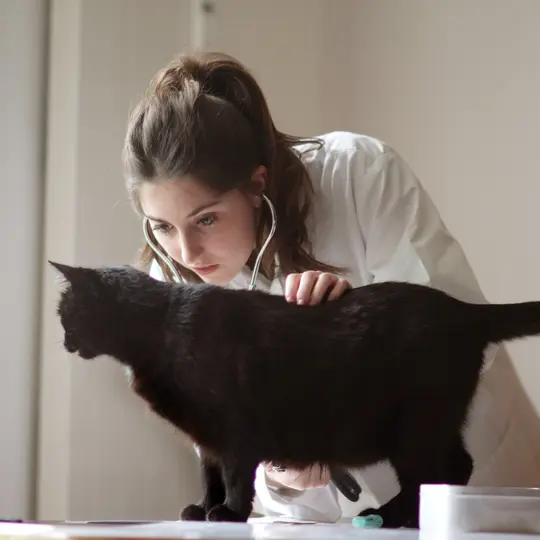1 of 5 / Diet & Nutrition
View All
2 of 5 / Cat Behavior
View All
How to Discourage Night Crazies
Tips for calming kitty so you can get some sleep.
How to Discourage Urine Marking
Why cats do it, and how to get this unpleasant problem under control.
Socializing Your Shy or Fearful Cat
Tips to help your shy cat feel comfortable around strangers.
Cats and Babies Can Coexist
With a few preparations, cat and baby can get along just fine.
3 of 5 / Kitten Care
View All
4 of 5 / Preventive Care
View All
Pretty Kitties: Get the Basics on Brushing
Regular brushing maximizes shine and minimizes hairballs.
Yak! The Truth About Hairballs
Why cats get hairballs, and how to keep them to a minimum.
Caring for Your Cat's Ears
A few basic maintenance tips should keep their ears in good shape.
Nail Trimming 101
Take the stress out of nail trimming with these tips.
5 of 5 / Common Conditions
View All
Suggested Reads about Cats
Populated Cities More Likely to Have Wild Cats With Parasites
Reducing the population of feral, or wild cats, particularly in cities, may reduce the risk of people being infected with toxoplasmosis, a disease caused by a dangerous parasite carried by cats.
8 Common Cat Behavior and Health Problems and Solutions
From litter box issues to scratching the furniture, cat behavior issues are no fun. But there are plenty of ways to address cat problems.
Homemade Cat Food and Raw Cat Food
Healthy homemade food, and some raw foods, are good for humans, but are they good for your cat? Here are the facts – and the risks.
Why Does My Cat Knead Me?
Learn more about why cats knead you with their paws.
8 million+ Physician Ratings & Reviews
Find Doctors and Dentists Near You
You can also search by physician, practice, or hospital name